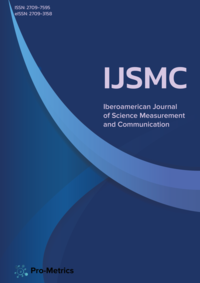
Virtual academic conferencing: a scoping review of 1984–2021 literature. Novel modalities vs. long standing challenges in scholarly communication
Objective. This study reviews the literature on virtual academic conferences, which have gained significant attention due to the COVID-19 pandemic.
Design. We conducted a scoping review, analyzing 147 documents available up to October 5th, 2021. We categorized this literature, identified main themes, examined theoretical approaches, evaluated empirical findings, and synthesized the advantages and disadvantages of virtual academic conferences.
Results. We find that the existing literature on virtual academic conferences is mainly descriptive and lacks a solid theoretical framework for studying the phenomenon. Despite the rapid growth of the literature documenting and discussing virtual conferencing induced by the pandemic, the understanding of the phenomenon is limited.
Conclusions. We provide recommendations for future research on academic virtual conferences: their impact on research productivity, quality, and collaboration; relations to social, economic, and geopolitical inequalities in science; and their environmental aspects. We stress the need for further research encompassing the development of a theoretical framework that will guide empirical studies.




